Protests, deaths and a collective breakdown
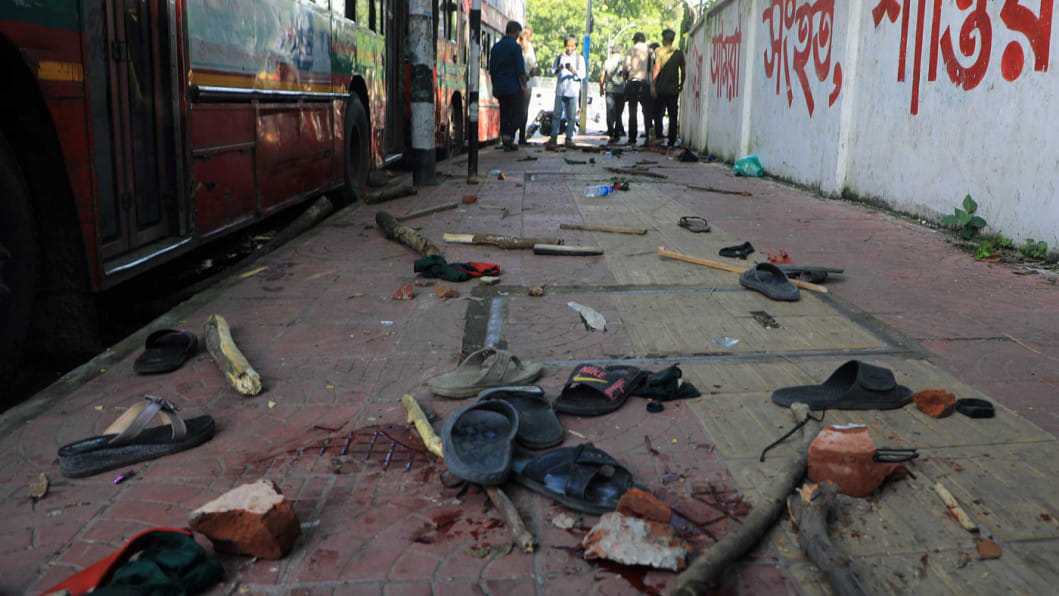
It is a special kind of horror to see the semi-abstract theories you studied for your semi-abstract major come to life, and begin to apply to events 20 minutes away from you. I came across the term necropolitics as a student in the last year of my bachelor's. A play on biopolitics, this specific rendition spoke to a new form of sovereignty, one where the state pushes to death certain lives deemed unworthy of keeping alive. It's the word that has been ringing in my mind since the start of the whole affair that cracked open the consciousness of the whole nation. It has been the only word that I can use to make sense of the violence that has ruptured across the lives of the young protesting for a fair chance at a decent future.
It is a fact well known that wordless horror brings with it a gnawing kind of pain that doesn't subside. But what of the pain that has a name but we are forbidden from saying it? What of the people who have questions, and even corresponding answers, but are not allowed to voice them? At the apex of the conflict, before the internet shutdown, things that must not be said were being stated on countless social media accounts. My Facebook app showing the same 20 posts that had loaded before the blackout all consisted of people fearlessly sharing information to assist the students, or revealing in fear and desperation the violence unleashed upon them.
In a near surreal turn of events, the BGB and were deployed along with the police to reign in a largely defenseless body of students demanding what is wholly allowed by our constitution. In the empty roads outside my house, bombs and guns were heard because of the fighting on the main road. For the past few days, a helicopter has been flying over our house and flocks of birds have intermittently flown off at the sudden sporadic loud sounds emanating from a place out of our view. The quiet and the unquiet moments have caused an equal amount of trepidation, all exacerbated by the sudden cutoff of information.
A dome has been placed upon us, and we have been feeling its presence since the day it descended. The atmosphere outside Bangladesh and the atmosphere inside it have been separated cleanly as if by surgical cut, severing us not just from the rest of the world, but even each other.
I try to imagine and then try to forget how frightened the kids must have been as they ran from the pellets fired from trained and armed personnel, how they rushed themselves and their friends to hospitals to tend to wounds they should have never gotten in the first place. All this systemic violence for a demand they had every right to make.
When the classes will begin, I will be forced to ensure normalcy, even when I know that of the over 100 students I am teaching, at least one may have lost a friend, or seen a kind of brutalisation that I personally can only justify if it were carried out in self-defence. We know from one of the most enduring images of the resurgent movement that not all the shootings were carried out for that reason.
In the days since the shutdown, I have felt the full slowness of each day. Throughout, it feels as if the time is not passing. Perhaps, however, it shouldn't pass, and the knot we feel in our chests should remain until a semblance of justice is achieved. Perhaps it is only right that I find myself sweating at the thought that a student may have died in the educational institution I have begun to teach in, because when I asked myself how to comfort the students, I came to the thought that perhaps comfort should be kept at bay for the time being. I have felt time and again since July 15 that we not only be allowed to keep grieving, but that we need to keep grieving. Perhaps the refusal to return to the previous state of normalcy will be the beginning of a quieter resistance, one tempered by the bone chilling fear of weapons on the land and sky far surpassing the collective will of people who want and believe in similar things, but still present even if in a dimmed capacity. Maybe we will find answers in the everyday acts of assistance toward a community that has been, and in many ways will continue to be segregated, not just by class, but by prejudice and unbacked assumptions.
In the long drawn out days since the lines of communication were shattered, I have thought of what the long term impact will be of such a violent reaction to a justified demand, from a segment of the population who know their rights precisely because they are intelligent and educated. What will be the effect of this crackdown on civil society? Will we slowly fold in and become smaller to accommodate powers we feel we should never question? What will happen to the many qualified people unable to find suitable employment that allows them to assist their families? Where will their frustrations go if they feel that their demands will be shut down with violence over and over again? What will it say about us if we stay silent? For the time being, the least we can do is make sure we remember, both the demands made, and the lives lost, because there is no discussion, acquiescence or reform that will bring them back.
Aliza Rahman is a member of the editorial team at The Daily Star.
Views expressed in this article are the author's own.
Follow The Daily Star Opinion on Facebook for the latest opinions, commentaries and analyses by experts and professionals. To contribute your article or letter to The Daily Star Opinion, see our guidelines for submission.

 For all latest news, follow The Daily Star's Google News channel.
For all latest news, follow The Daily Star's Google News channel. 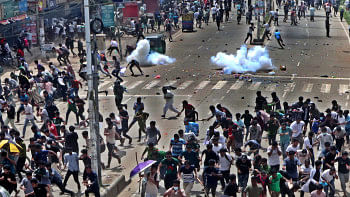
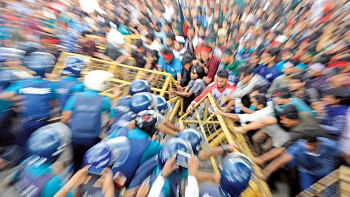


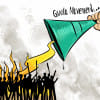
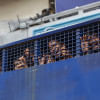

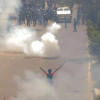


Comments